How Inflation Affects the Housing Market: A Closer Look
Have you ever wondered how inflation impacts the housing market? It's a question that's been on the minds of many homeowners, potential buyers, and real estate enthusiasts lately. Inflation, the rise in the general price level of goods and services over time, has a profound effect on various aspects of our economy, and housing is no exception.
Shelter Inflation: A Crucial Component
Much like overall inflation measures the cost of everyday items, shelter inflation hones in on the cost of housing. Shelter inflation takes into account the expenses associated with renting or owning a home, such as rent, mortgage payments, and utilities. Understanding shelter inflation is essential because it directly affects the housing market's dynamics.
Recent Trends in Shelter Inflation
In recent months, shelter inflation has been in the spotlight, with significant implications for homeowners and potential buyers. According to data from the Bureau of Labor Statistics (BLS), shelter inflation has been on a downward trend for four consecutive months. This decrease in shelter inflation rates suggests that the broader issue of overall inflation might follow suit, ultimately impacting the cost of living for everyone.
Inflation and the Federal Funds Rate
So, what has the Federal Reserve been doing to combat inflation? One of their primary tools is the Federal Funds Rate, which is the interest rate at which banks lend money to each other overnight. When inflation starts to climb, the Fed raises the Federal Funds Rate to cool down the economy and keep it from overheating. This action reduces the amount of money circulating in the economy and makes borrowing more expensive.
The Fed's Goal: A 2% Target
The Federal Reserve has a target for inflation: 2%. This means they aim to keep inflation at a steady and manageable rate to maintain economic stability. When inflation strays too far from this 2% goal, the Fed takes action. As inflation gets closer to the Fed's target, they may not need to raise the Federal Funds Rate as aggressively.
Signs of Moderating Inflation
The recent dip in shelter inflation is encouraging news for those concerned about the rising cost of living. While no one can predict the future for certain, moderating inflation in the housing market is a positive sign. It suggests that the broader economy may also experience a slowdown in inflation in the months ahead, which could benefit everyone.
While inflation and its impact on the housing market are complex, being well-informed and seeking expert advice can help you make informed decisions in this dynamic environment. Inflation is a multifaceted force that affects many aspects of our lives, including the housing market. Shelter inflation, as a key component of overall inflation, plays a crucial role in determining the cost of housing for everyone. Recent trends in shelter inflation, along with the Federal Reserve's response through the Federal Funds Rate, indicate that we may see a moderation in inflation in the near future. While the future remains uncertain, staying informed and seeking expert guidance can help you navigate the evolving housing market landscape.
Selling Your Home?
Get your home's value - our custom reports include accurate and up to date information.




